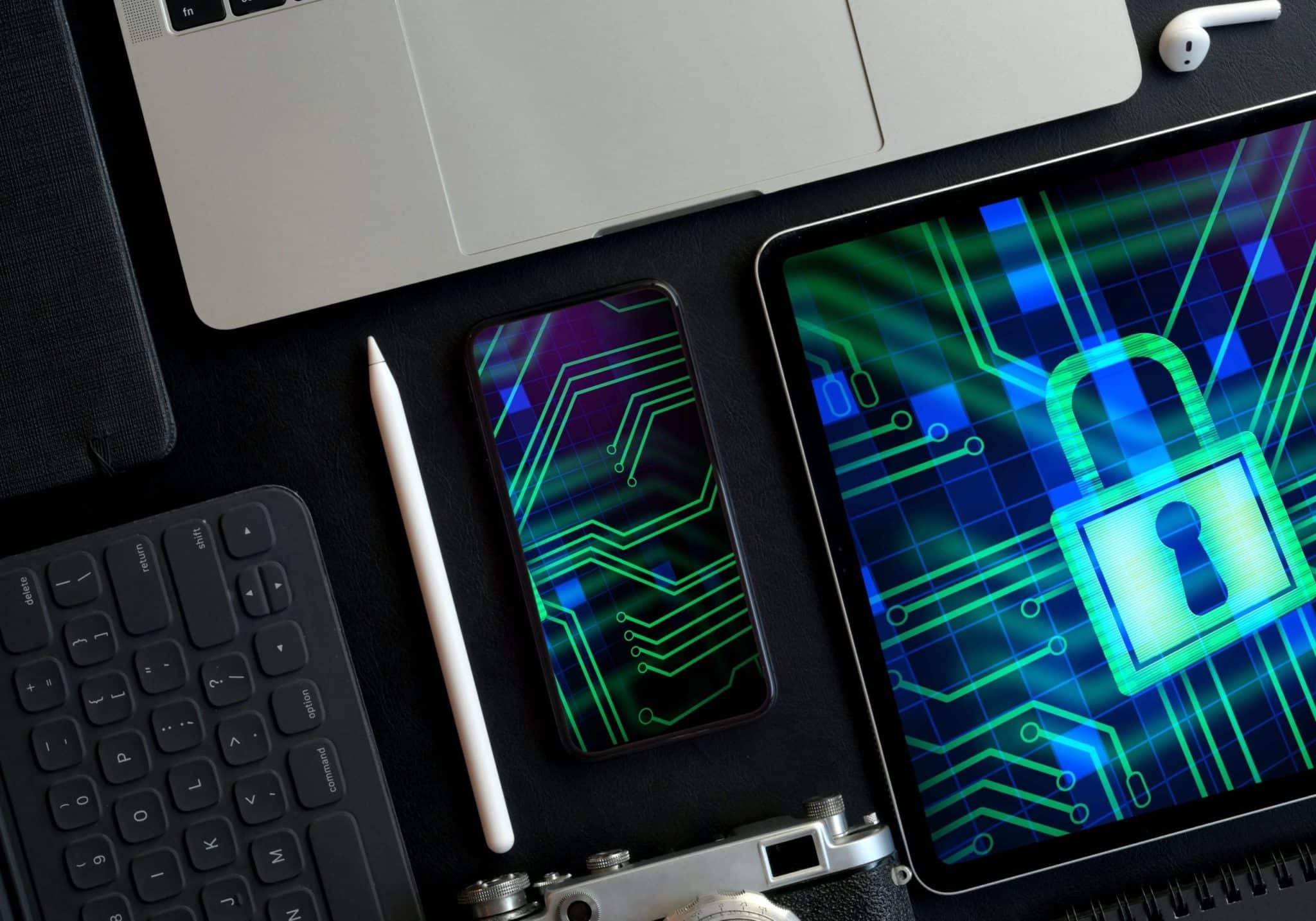Web safety has become an almost innate part of being on the internet these days, but that only means that cyber-criminals are getting smarter. Information and data are a form of currency, which means it’s up for grabs if it’s not protected at all times.
Information security is even more important for employees, as there’s more on the line when it comes to your company’s data. Most large businesses have fairly set-in-stone cybersecurity policies and processes already in place that the team must follow — but that’s not always enough to get the job done. This is especially true for small or midsize companies, where there are more lax protocols in place because it would seem that larger enterprises are the target.
We’re not asking anyone to become Sherlock Holmes, but it’s not hard to put yourself in the mind of a cybercriminal — who knows that smaller companies are an easier target with less than stellar security measures.
Regardless of the company’s size or the intensity of the security protocols in place, there’s no safeguard for human error or negligence other than attention to detail and diligence. One employee can open up a corrupt link or become too lax with sensitive data, and you may be looking at a costly breach.
That’s why we’re going over some of the most crucial “best practices” that small to midsize employees need to follow at all times to keep information and sensitive data safe.
Data Protection
Personal information like your Social Security Number, address, or credit card information is always top of mind. We all know that offering up that information online is a dangerous game, even with those who we trust.
Some hackers or cybercriminals are utilizing fake email addresses, links, or websites that look legitimate — so it can be difficult to identify risk areas — but it’s always safe to keep personal data and information out of emails, text messages, or instant messages.
Now, these are all great and all for personal information, but what about your company data? Well, it’s oftentimes unintentional, but leaking company data can be pretty easy — especially if you’re not careful. Snapping a photo in the office without realizing that information is on a computer or whiteboard can be costly. Whether it’s your own intellectual property (IP), or that of another company, accidental sharing can cause serious issues.
Avoid Unknown Emails, Pop-ups, + Unreliable Links
One of the most prevalent hacker strategies is known as phishing. Whether you know the term or not, you’re certainly familiar with the practice. Phishing refers to hackers laying out lures, usually in the form of links through various mediums like:
- Emails
- Text messages
- Pop-ups
- Attachments
- Social media
Phishers can be tricky, and may already know some information on employees or even management that they’ll use to trick victims into opening links. It’s not unheard of for hackers to create email addresses using the names of known employees to trick employees into opening up malicious links.
Here are some things to always remember in regard to phishing hazards.
- Never enter any personal or company information into emails, pop-up websites, or communication you didn’t initiate
- Check-in with a fellow employee if you receive a request for information that seems suspicious
- Always exercise caution when it comes to sharing information, it’s never too safe to double-check with the security department, department heads, or IT to be certain
If possible, companies can utilize email authentication technology or resources to block suspicious emails. We’re all fairly familiar with the “spam” folder, but there is software that is better equipped to handle business cybersecurity needs.
Password Policies
We all know the importance of a strong password, which you can encourage by enforcing robust password policies for company databases. Unique passwords that involve more characters with capitalization and punctuation requirements are recommended.
Here’s a good checklist to use when enforcing password policies in the office.
- 10 characters or more
- Includes numbers, symbols, capital + lowercase letters
- Regularly scheduled password changes (every six months – 1 year)
- Multi-factor verification (or 2-step verification)
We know that changing passwords continuously can be difficult, but it may save your sensitive company info. Password managers like LastPass can help keep employees organized.
Sensitive network, database, or server logins should require multi-factor authentication — which will send temporary codes to smartphones in order to log in, in addition to a strong password system.
Reliable Antivirus Solutions
Antivirus solutions are important because they are able to root out Trojan horses from incoming files and attachments. What a Trojan horse virus does is create a vulnerability within your system that can be exploited from an external source to obtain your sensitive information. Antivirus solutions with heuristic detection would form the best line of defense for your data since they deal with current Trojan variants and any files that follow the same footprint of a Trojan.
Enable Firewall Protection at Work + Home
With more and more employees working from home, it’s equally important to have firewall protection for company networks at work and in the homes of employees who may be accessing sensitive data.
Firewalls are on the front lines when it comes to cybersecurity, and do an excellent job of protecting information against cyberattacks. With the current pandemic forcing more and more workers to complete crucial activities from their homes, your company should encourage firewall installation in home networks or offer them to employees. It’s a sound investment that can save you a headache and a hassle down the line.
Utilize Encryption Keys
If your business deals with eCommerce, it is essential to have encryption software installed to ensure that information transmitted over a connection is secure. However, encryption isn’t just for eCommerce — as these keys can play an integral role in a wide variety of cybersecurity systems. Today, many of the systems we utilize online take advantage of encryption keys, and we may not even know it.
Data encryption is often the most secure way to go about protecting data, as these keys use random strings of bits through complex algorithms that are constantly changing to fool hackers.
This avoids problems from man-in-the-middle attacks. The SSL (secure socket layer) protocol is your best friend when it comes to establishing a secure connection, but using encryption software to encode things like credit card details is an added layer of protection you should not overlook.
Secure Your Wi-Fi Connection
Wi-Fi security is a major issue for businesses since all of the business’ machines utilize the same wireless network. Opening up a network to the public allows external, untrusted machines to access files on the network and download or change those files. Securing your wireless network is a step towards protecting your data from local connection exploits and maintaining your data’s security.
Take Cybersecurity Seriously
Company data, even at the small to midsize business level, needs to be protected at all times. Some of the tips and best practices we’ve offered here can be used by employees to ensure sensitive worker data or company information remains secure — while others may need to be employed at a company level.
Cybercrime will continue to rise as technology becomes more ingrained in everyday business use. As more enterprises & businesses transition online, it’s important that employees and business owners realize the importance of cybersecurity measures.




